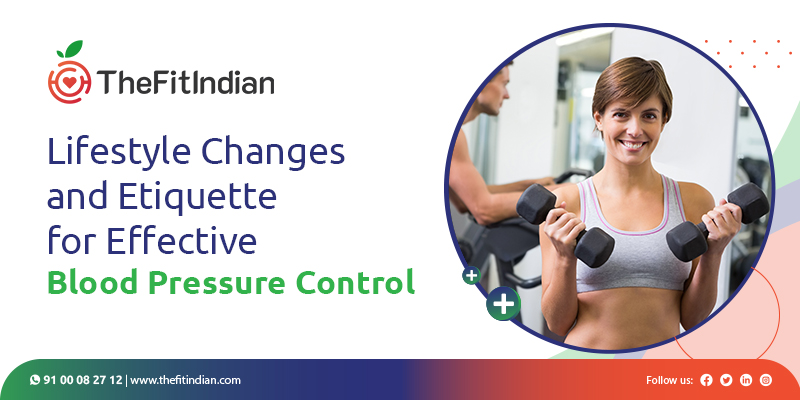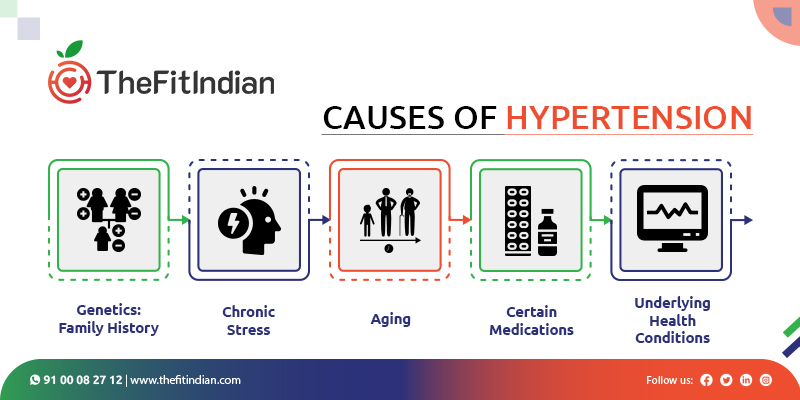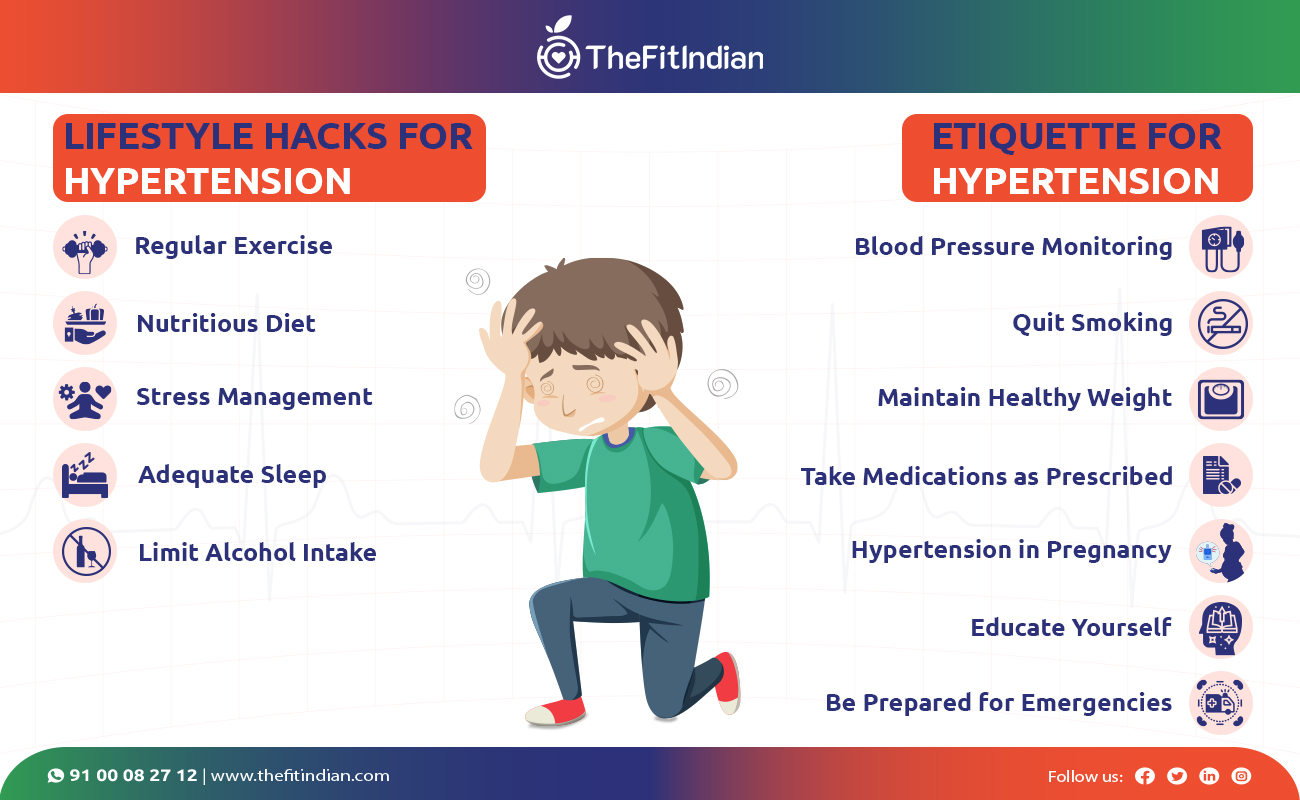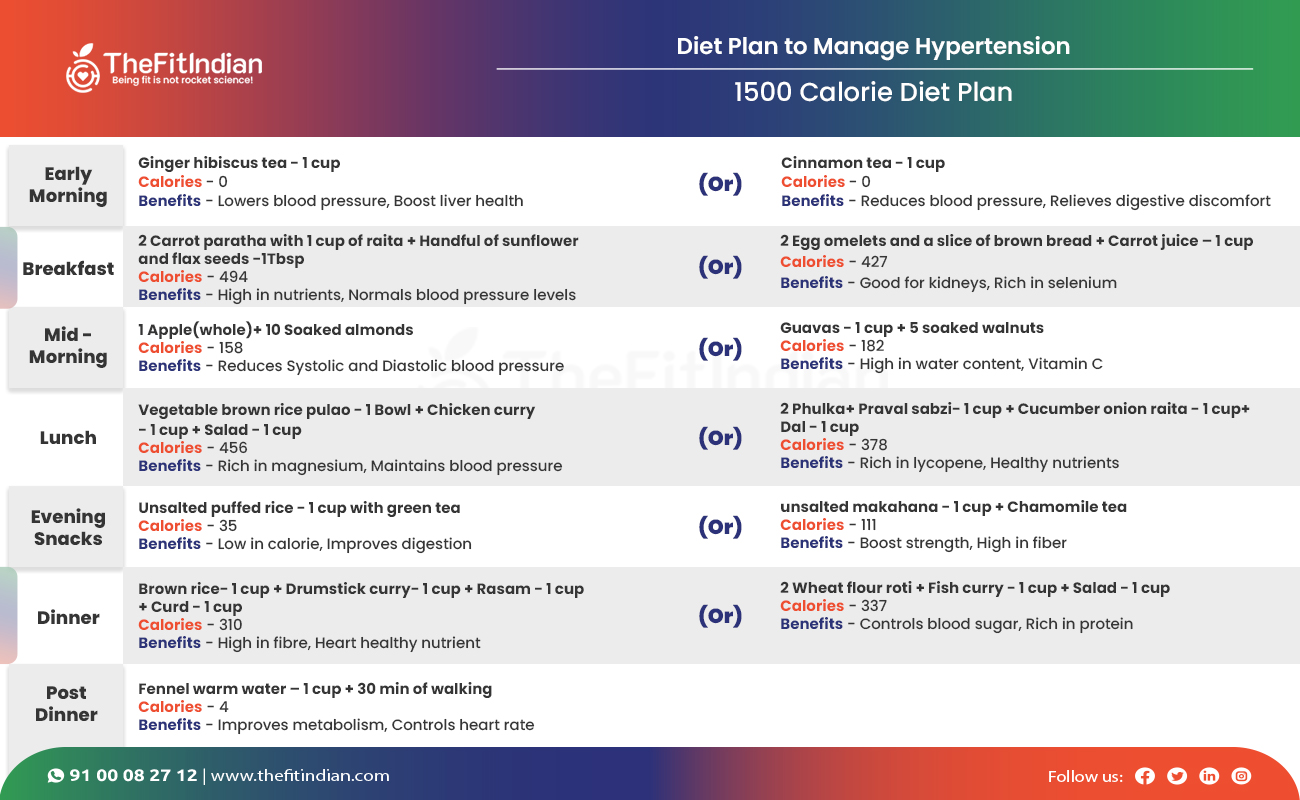Managing Hypertension: Lifestyle Changes and Etiquette for Effective Blood Pressure Control
Reviewed by: Dr. T S Deepthi Sarojini | Author: Manoja Kalakanti
Are you striving hard to find a way to control your high blood pressure? You are not alone. According to the World Health Organization, around 1.13 billion people worldwide have hypertension, a medical condition that occurs when the force of blood flowing through the arteries is consistently too high. Hypertension is one of the risk factors for heart stroke, heart disease, and other serious health problems. While medication is often necessary to control hypertension, lifestyle modifications can significantly improve blood pressure and overall health.

In this blog, we will study some effective hypertension and lifestyle hacks and etiquette that can help individuals manage their hypertension more effectively. From exercise and diet to stress management and sleep, we will cover all the essential strategies you need to know to take control of your hypertension and improve your overall health. So do not let high blood pressure hold you back – read on to discover how you can live your best life with hypertension.
Comprehensive Look at the Types and Causes of hypertension
Hypertension definition refers to a medical condition where the force of blood flowing in the arteries is constantly higher than usual. It occurs when the blood pressure is putting strain on the heart and other organs. Understanding the types and causes of hypertension can help individuals manage their blood pressure more effectively.
Types of Hypertension
There are two main types of hypertension:
- Primary (essential) hypertension is the most common type and has no identifiable cause.
- Secondary hypertension is caused by underlying medical conditions such as kidney disease, sleep apnea, or side effects.
Causes of Hypertension
Several factors can contribute to the development of hypertension, including:

- Genetics: A family history of hypertension can increase the risk of developing the condition.
- Age: The likelihood of hypertension increases with age.
- Lifestyle factors: Unhealthy lifestyle habits such as lack of physical activity, poor diet, and smoking can contribute to hypertension.
- Health conditions: Certain health conditions, such as kidney disease, diabetes, and sleep apnea, can increase the risk of hypertension.
- Medications: Certain medications, such as birth control pills, decongestants, and pain relievers, can increase blood pressure.
- Stress: Chronic stress can contribute to hypertension by increasing the body’s production of stress hormones.
- By understanding hypertension causes and types, individuals can take steps to manage their blood pressure more effectively. In addition, maintaining a healthy lifestyle, managing stress levels, and regularly monitoring blood pressure can help prevent complications associated with hypertension.
The Impact of Your Weight on Health and Hypertension
One important risk factor for hypertension, or high blood pressure, is being overweight. When you are overweight, your blood vessels are under more pressure because your heart needs to work harder to pump blood. This added pressure may damage your blood arteries over time, resulting in life-threatening conditions like renal disease, heart disease, and stroke.

Losing weight can help you manage hypertension and drastically drop your blood pressure. Even a tiny amount of weight loss can significantly affect your blood pressure. According to studies, losing merely 5 to 10% of your body weight can lower blood pressure and enhance general health.
Making a hypertension diet plan, eating a healthy, balanced diet, and exercising frequently are the best approaches to losing weight and enhancing health. Discussing the most effective treatment options with your healthcare physician if you are battling hypertension or excess weight is crucial. Now let us discuss the lifestyle hacks and etiquette for regulating hypertension.
Lifestyle Hacks for Hypertension
Living with hypertension can be challenging, but many lifestyle changes can help deal with the condition and reduce the risk of complications. Here are some lifestyle hacks that can help individuals with hypertension:

- Get regular exercise: Regular exercises, such as walking, jogging, cycling, or swimming, can help lower blood pressure and reduce the risk of complications.
- Maintain a nutritious and healthy diet: A diet rich in whole grains, vegetables, fruits, and lean proteins and low in saturated fats, processed foods, and sodium can help reduce blood pressure. Search for hypertension foods to eat to get more knowledge on what to eat for hypertension management.
- Manage stress: Stress can increase blood pressure and affect overall health. Deep breathing, meditation, and yoga can help manage stress.
- Get enough sleep: Lack of sleep can increase blood pressure and affect overall health. So, make sure to get at least 7 to 8 hours of sleep every day.
- Limit alcohol intake: Drinking excessive alcohol can increase blood pressure and the risk of complications. Therefore, it is recommended to limit alcohol intake to moderate levels.
Etiquettes for Hypertension
In addition to these hypertension and lifestyle hacks, there are also etiquette tips to keep in mind when living with hypertension:
- Keep track of blood pressure: Regular blood pressure monitoring is essential. Use a home blood pressure monitor or visit a healthcare professional regularly.
- Quit smoking: Smoking can cause damage to blood vessels, increasing the risk of hypertension and other health problems. Quitting smoking can help decrease the risk of complications.
- Maintain a healthy weight: Excess weight is a common risk factor for hypertension and other health complications. Therefore, maintaining a healthy weight is crucial for effective hypertension management. By including a balanced diet and regular exercise, you can reduce the possibility of complications and improve overall health.
- Take medications as prescribed: If prescribed medicines for hypertension, it is vital to take them to manage blood pressure and reduce the risk of complications.
- Hypertension in pregnancy: Pregnancy-induced hypertension can pose risks to both the mother and baby, including preterm delivery, low birth weight, and preeclampsia. Women with hypertension planning to become pregnant or already pregnant should receive prenatal care and closely monitor their blood pressure. Medication adjustments may be necessary to manage hypertension in pregnancy, and lifestyle changes may need to be made to reduce the risk of complications.
- Educate yourself: Learn about hypertension, its causes, and how to manage it effectively. Educating yourself can help you make informed decisions about your health and manage hypertension more effectively.
- Be prepared for emergencies: In case of an emergency, make sure that you have a plan in place. This may include carrying a medical alert bracelet, keeping emergency contact information on hand, and knowing what to do in a hypertensive crisis.
Diet Plan for Hypertension management

Summing Up
Hypertension is a complex condition affecting millions worldwide, but it can be controlled effectively with right hypertension and lifestyle changes. By keeping track of blood pressure, maintaining a healthy diet, getting regular exercise, quitting smoking, limiting alcohol intake, managing stress, getting enough sleep, maintaining a healthy weight, taking medications as prescribed, and educating themselves, individuals with hypertension can significantly reduce the risk of complications and improve overall health.
From small lifestyle hacks to significant changes, every effort counts. Remember, hypertension can be a serious condition, but individuals can take care of their health and lead happy, healthy lives with the right mindset and approach. Do not let hypertension control you take control of hypertension.
FAQs
Hypertension, also known as high blood pressure, is a condition in which the force of blood against the walls of the arteries is consistently too high, which can lead to serious health problems.
Hypertension is often called the “silent killer” because it may not cause any noticeable symptoms until it reaches a severe stage. Some common symptoms may include headaches, shortness of breath, dizziness, and chest pain.
High blood pressure usually has no noticeable signs or symptoms, but it can be detected through regular blood pressure checks. Some of the signs that may indicate high blood pressure include frequent headaches, blurred vision, chest pain, and shortness of breath.
The risks associated with hypertension:
Increased risk of heart disease and stroke
Kidney damage or failure
Cognitive decline and dementia
Peripheral artery disease
Diabetes complications
Sleep apnea
Bone loss
As you get older, there are some lifestyle changes you can make to help reduce your blood pressure, including regular exercise, maintaining a healthy weight, reducing your sodium intake, and limiting your alcohol and caffeine consumption. It is also important to regularly monitor your blood pressure and follow any prescribed medication regimen.
The normal values for systolic blood pressure should be less than 120 mmHg, and diastolic blood pressure should be less than 80 mmHg.
Hypertensive headache is a type of headache that is caused by high blood pressure. Symptoms of a hypertensive headache may include a dull or throbbing pain that is typically felt on both sides of the head, sensitivity to light and sound, and nausea.
Yes, the DASH (Dietary Approaches to Stop Hypertension) diet is recommended for people with hypertension. It is a diet rich in fruits, vegetables, whole grains, lean proteins, and low-fat dairy products, and is low in saturated fats, added sugars, and sodium.
Foods that are recommended for hypertension include fruits, vegetables, whole grains, lean proteins, low-fat dairy products, nuts, and seeds. It is important to limit the intake of saturated fats, added sugars, and sodium.
Brisk walking is an excellent form of aerobic exercise that can help reduce blood pressure, improve cardiovascular health, and reduce the risk of other health problems associated with hypertension.

Manoja Kalakanti